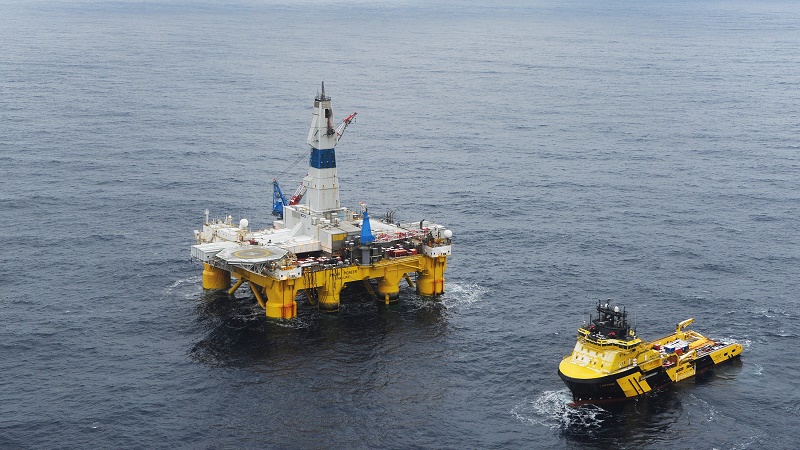Campaigners will take their battle to block Arctic oil drilling to Norway’s supreme court, they announced on Monday.
They intend to appeal Oslo district court’s ruling last month that the Norwegian government may continue to award exploration licences for the Barents Sea.
If the court accepts the case, it will test whether fossil fuel exporters can be held accountable for the climate impact of burning their product overseas.
“There is already enough carbon dioxide in the atmosphere to seriously damage our future,” said Truls Gulowsen, head of Greenpeace in Norway, one of the organisations behind the lawsuit.
“By opening up these pristine areas for oil exploration Norway is effectively smuggling its emissions outside of its own borders and furthering climate change, which harms everyone, everywhere.”
Along with Nature and Youth, an affiliate of Friends of the Earth, Greenpeace is arguing that expanding oil and gas production violates Norwegians’ constitutional right to a healthy environment.
The district judges acknowledged that constitutional right, but accepted the state’s defence that adequate environmental protections were in place. Critically, they said the government was only responsible for greenhouse gas emissions on Norwegian territory, not the climate impact of its oil exports.
Report: Portuguese kids crowdfund to sue EU countries for climate inaction
Cathrine Hambro, a lawyer for the environmental groups, said they would challenge that interpretation of the law.
“It doesn’t matter where the oil is burned,” she said in a statement. “It is our view that as long as the consequences of the oil exploration effects Norwegian inhabitants’ environmental rights, it is clear from the constitution that the state is responsible for that effect.”
Norway has ambitious targets to slash its domestic emissions, backed by measures to end petrol car sales by 2025 and harness its clean hydroelectricity for transport.
At the same time, oil remains a stalwart of the economy, accounting for 14% of GDP in 2017. A rough estimate, using a US EPA average for carbon emissions per barrel of oil, indicates the carbon emissions from Norway’s 2017 oil production, when burned, would be between five and six times the country’s own annual emissions.
If Norway’s supreme court will not accept the case directly, the campaigners will seek a hearing at the appeals court. They argue that the urgency of the issue warrants fast-tracking the process.
Globally, at least two thirds of proven coal, oil and gas reserves cannot be burned under the 2C upper warming limit agreed by 197 governments in Paris. Yet energy majors continue to make bullish demand forecasts, assuming population and economic growth will outweigh emissions regulations and clean technology.
On Friday, ExxonMobil responded to shareholder pressure and published its assessment of the oil demand trajectory in a 2C world: a decline of 0.4% a year to 2040. This was separate to its energy outlook, which forecast a 20% increase in demand by 2040. Its investments are based on the latter projection.
The Arctic oil case is part of a wave of climate litigation targeting fossil fuel producers, in a bid to address that disconnect.
New York City last month followed a number of Californian cities and counties in suing oil majors over their contribution to causing climate change. The defendants argue climate policy is a matter for government and they are serving the public by meeting people’s energy needs.
A Peruvian farmer is taking German utility RWE to court in a case based on similar principles, seeking funds to protect his village from glacial lake flooding. The case was originally dismissed but a higher court agreed to hear the evidence.
While climate cases against oil majors have failed in the past, these are testing novel legal approaches. They draw on the latest science joining the dots between companies, historic emissions, global warming, sea level rise and extreme weather damage.
